I had this same issue while developing my ble app, but after reading documentation on the following link: https://developer.android.com/reference/android/bluetooth/le/ScanResult.html
the important classes as far as UUID (Depending on the API you are developing for) is concerned are:
AdvertiseData
AdvertiseData.Builder
ScanRecord
ScanResult
after reading through documentation for these classes, this is the code I wrote to get UUID for any device being scanned:
//For API < 21:
private BluetoothAdapter.LeScanCallback scanCallBackLe =
new BluetoothAdapter.LeScanCallback() {
@Override
public void onLeScan(final BluetoothDevice device, int rssi, final byte[] scanRecord) {
final int RSSI = rssi;
if (RSSI >= signalThreshold){
scanHandler.post(new Runnable() {
@Override
public void run() {
AdvertiseData data = new AdvertiseData.Builder()
.addServiceUuid(ParcelUuid
.fromString(UUID
.nameUUIDFromBytes(scanRecord).toString())).build();
scannerActivity.addDevice(device, RSSI, getUUID(data));
}
});
}
}
};
//For APIs less than 21, Returns Device UUID
public String getUUID(AdvertiseData data){
List<ParcelUuid> UUIDs = data.getServiceUuids();
//ToastMakers.message(scannerActivity.getApplicationContext(), UUIDs.toString());
String UUIDx = UUIDs.get(0).getUuid().toString();
Log.e("UUID", " as list ->" + UUIDx);
return UUIDx;
}
For API's > 21:
private ScanCallback mScanCallback = new ScanCallback() {
@Override
public void onScanResult(int callbackType, final ScanResult result) {
Log.i("callbackType", String.valueOf(callbackType));
Log.i("result", result.toString());
final int RSSI = result.getRssi();
if (RSSI>=signalThreshold) {
scanHandler.post(
new Runnable() {
@Override
public void run() {
BluetoothDevice device = result.getDevice();
scannerActivity.addDevice(device, result.getRssi(), getUUID(result));
}
});
}
} ...}
//For APIs greater than 21, Returns Device UUID
public String getUUID(ScanResult result){
String UUIDx = UUID
.nameUUIDFromBytes(result.getScanRecord().getBytes()).toString();
ToastMakers.message(scannerActivity.getApplicationContext(), UUIDx);
Log.e("UUID", " as String ->>" + UUIDx);
return UUIDx;
}
I was able to obtain a 128 bit UUID of any device using this code. :)
